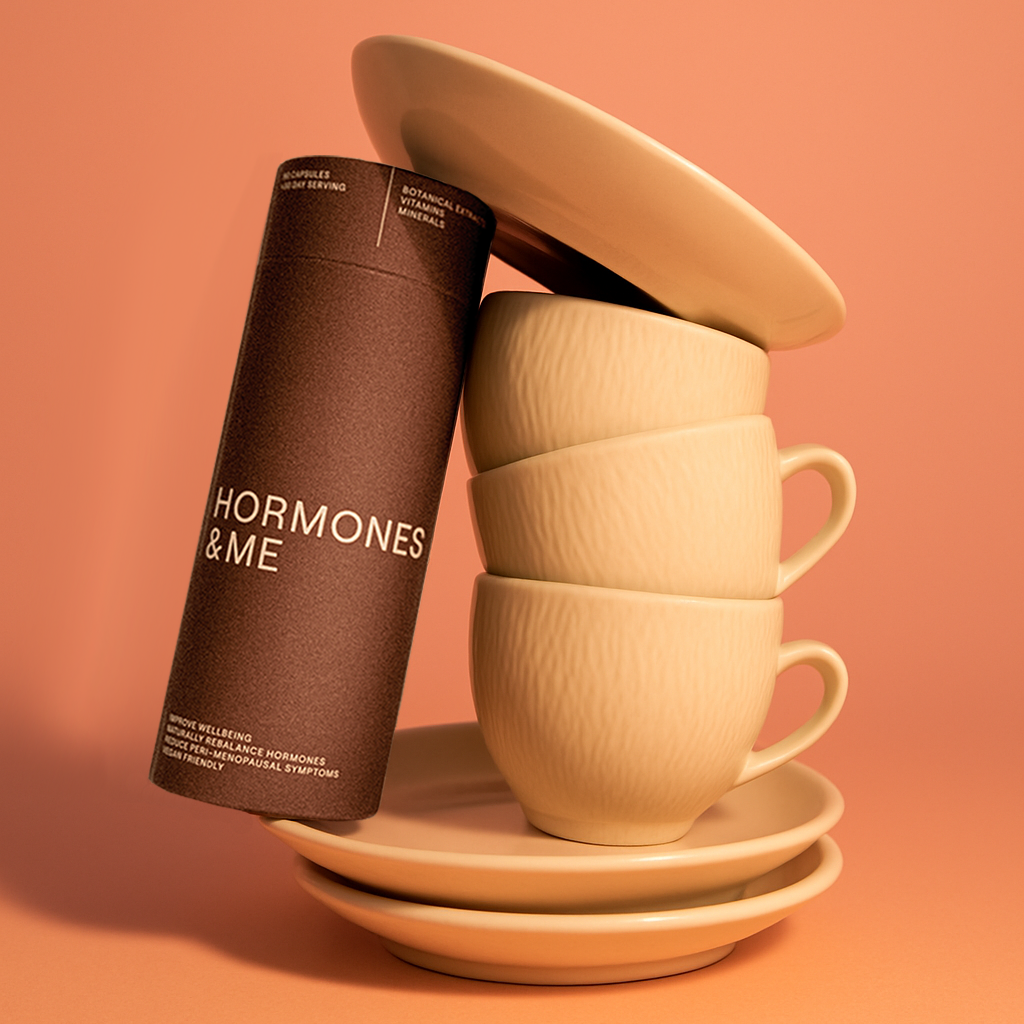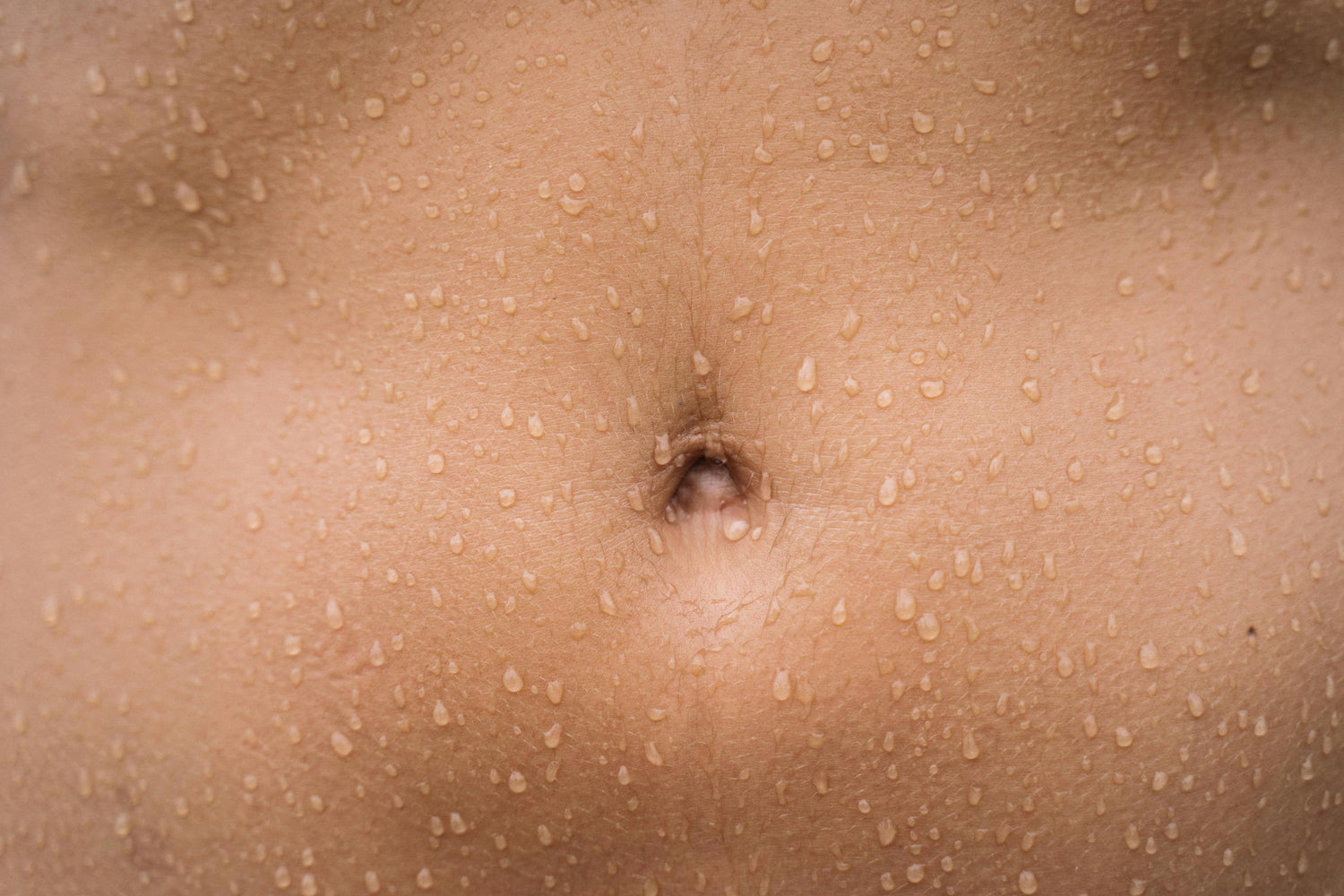
EXPLORE THE GIFT SHOP
Curated gifts that support their wellbeing this holiday season and on.

HEALTHY HABITS
IMMUNE SUPPORT FOR THE WHOLE FAMILY
Science-backed supplements to help you through cold season.
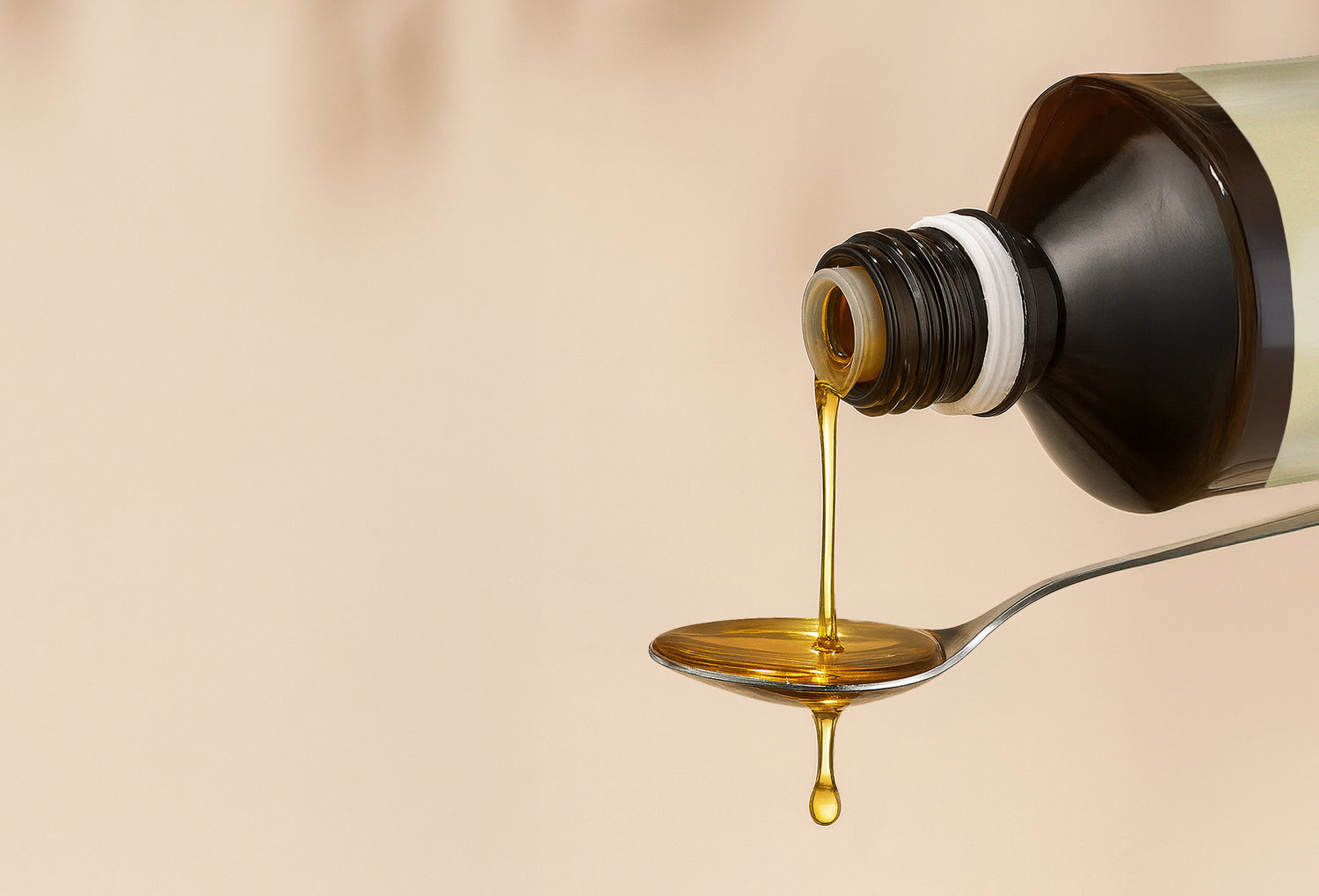
NEW ARRIVAL
YOUR DAILY FOUNDATION
Our OMEGA-3+ delivers over 2,000 mg of EPA and DHA per serving in a convenient liquid format.

BETTER SLEEP, STARTING TONIGHT.
Your nightly reset in two simple steps.
1 of 4





CUSTOMER REVIEWS
HOLIDAY BALANCE
The bestselling supplement for menopausal women.
13 active ingredients for mood, energy, and hormonal support.

MULTIVITAMIN GUMMIES
When life gets busy, try this.
Packed with essential vitamins in a format you’ll actually take — simple, delicious and effective.

GET YOUR GLOW BACK
Dry Winter Skin?
Give your skin barrier extra support with high-dose collagen peptides and hyaluronic acid.
BEST SELLERS

FOR RELIEF PR. NO 1
FOR RELIEF is our best-selling probiotic powder, taken daily by thousands to support digestive balance.

Collagen+
Collagen+ is a daily powder made to support skin elasticity, hydration, and glow — from within.
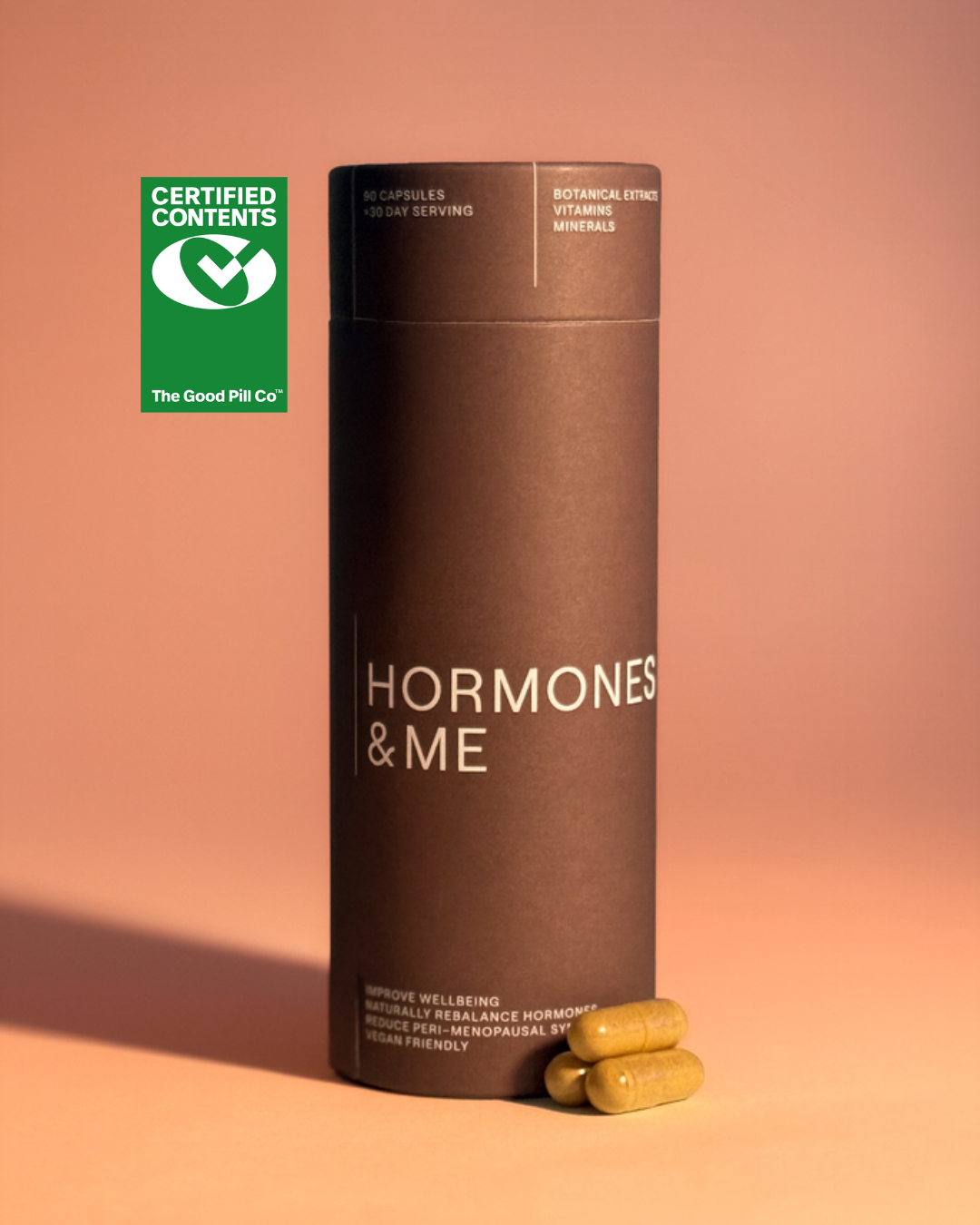
HORMONES & ME
HORMONES & ME is our bestselling supplement for women in perimenopause and menopause.
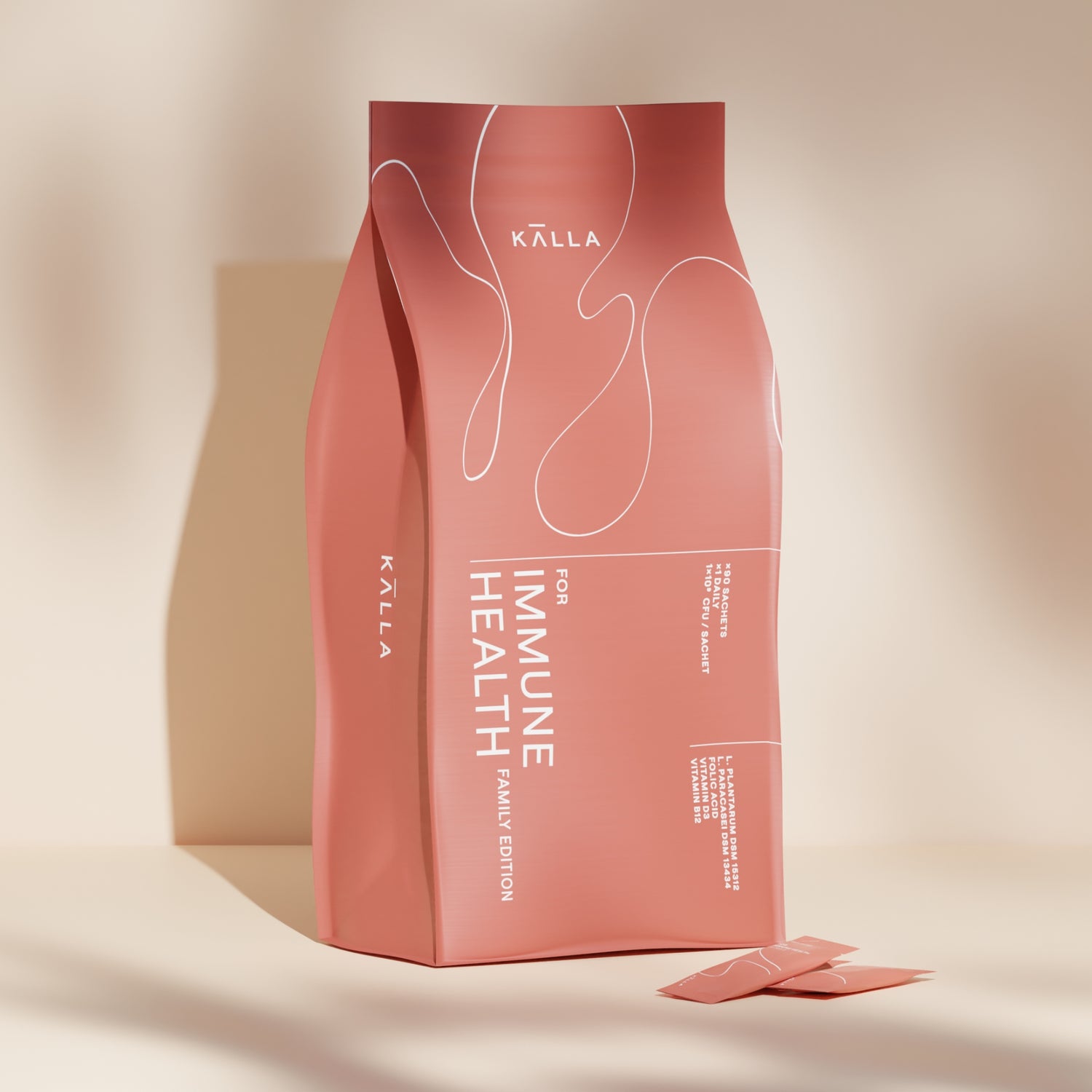
FOR IMMUNE HEALTH - FAMILY EDITION
FOR IMMUNE HEALTH FAMILY EDITION is formulated for adults and children aged 1+, combining two clinically studied strains with immune-supporting vitamins D, B12, and folic acid.
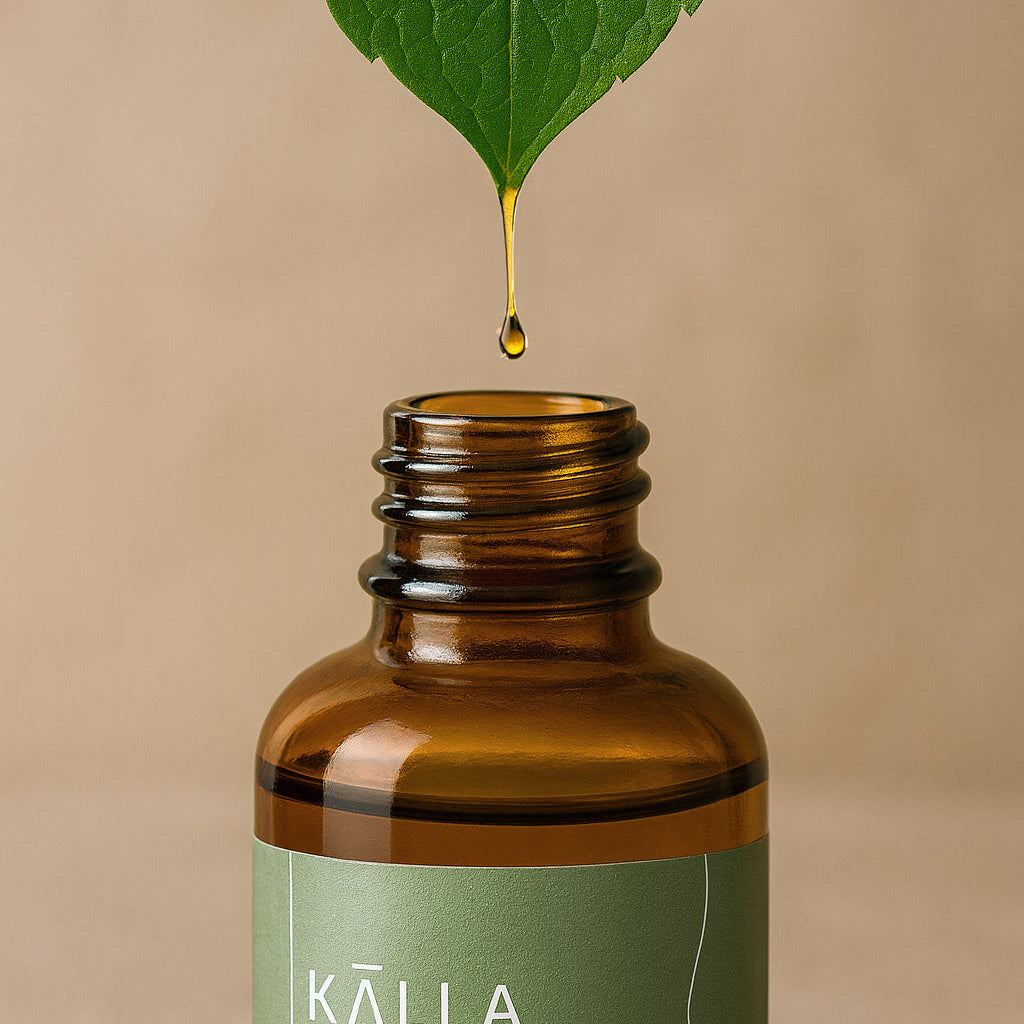
PEPPERMINT OIL
Developed in collaboration with Dr. Rana Eizad (@magdoktorn), our 100% pure peppermint oil is designed to help soothe bloating.

ESSENTIALS FOR HIM
ESSENTIALS FOR HIM is formulated to support healthy testosterone levels and performance as the body changes with age.
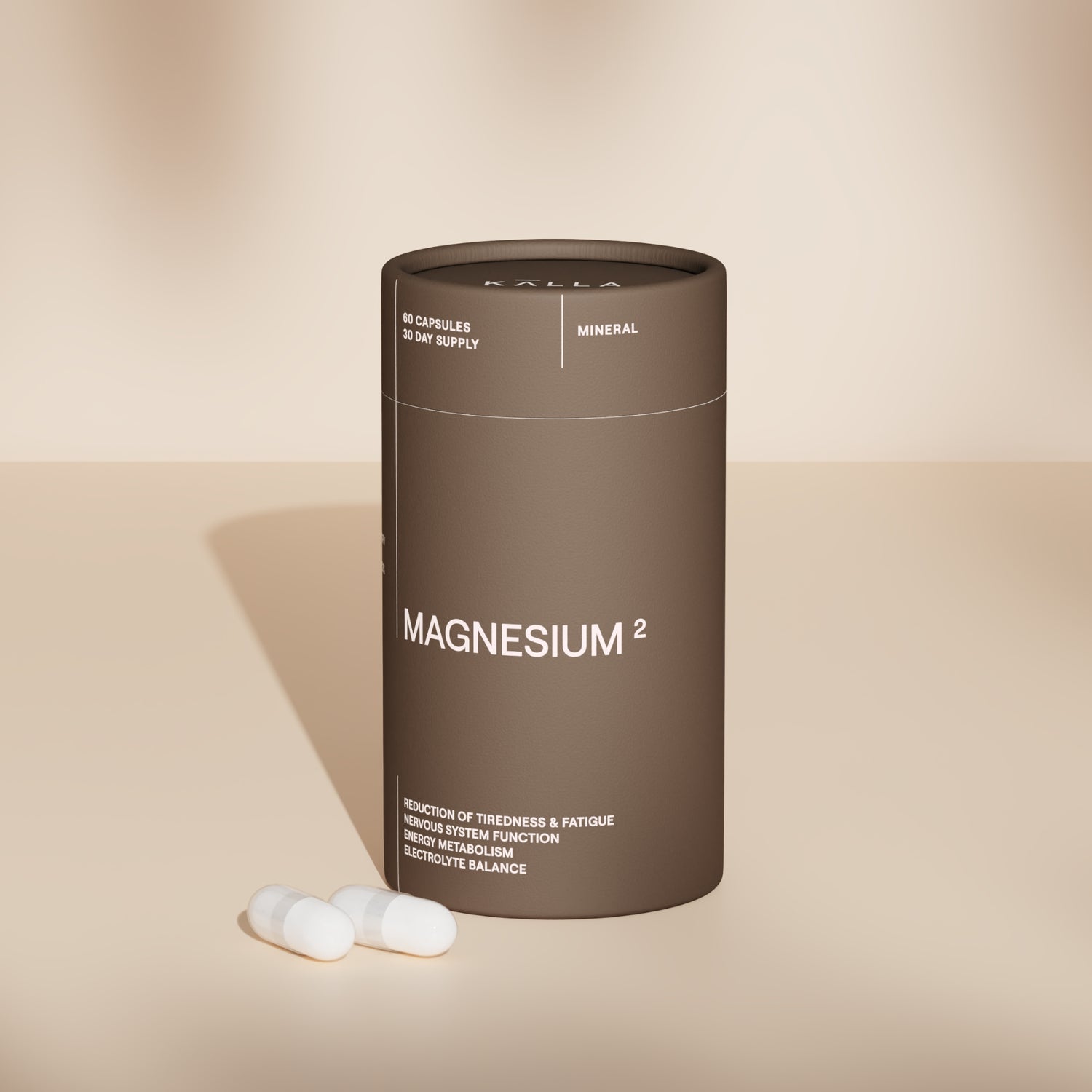
Magnesium
Magnesium² combines two highly absorbable forms to promote muscle relaxation, deeper sleep, and overall well-being.
90%
Felt a difference in 30 days of taking the probiotic bacteria in FOR RELIEF.
Source: Niedzielin et al (2001)
SHOP BY CONCERN

FOR RELIEF PR. NO 1
FOR RELIEF is our best-selling probiotic powder, taken daily by thousands to support digestive balance.

PERFORM: Protein Powder
PERFORM is the first probiotic protein powder formulated to deliver results—without the bloat.

PEPPERMINT OIL
Developed in collaboration with Dr. Rana Eizad (@magdoktorn), our 100% pure peppermint oil is designed to help soothe bloating.
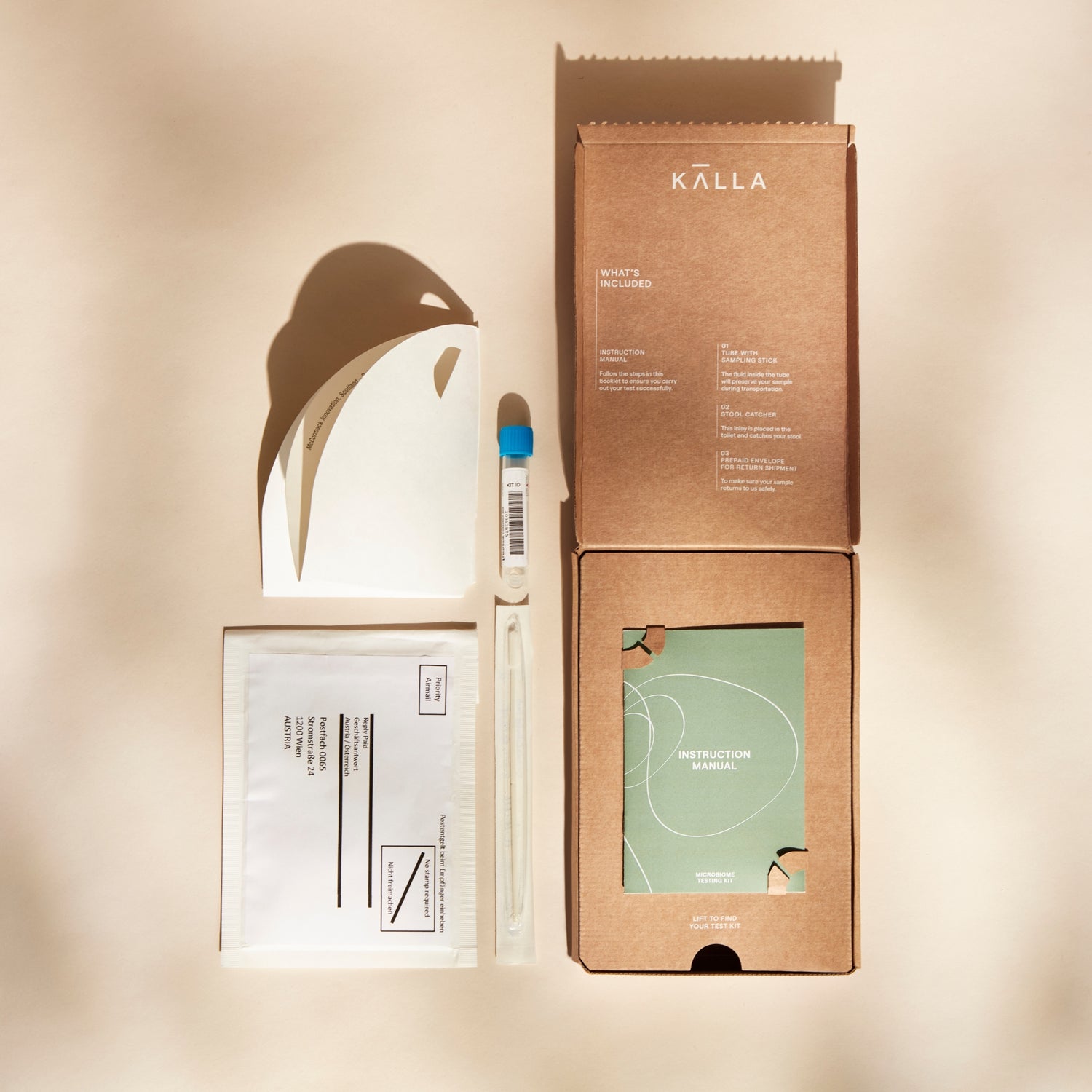
Microbiome Test
This at-home stool test is a simple way to get to know your gut health status, helping you make informed decisions about your diet and lifestyle.
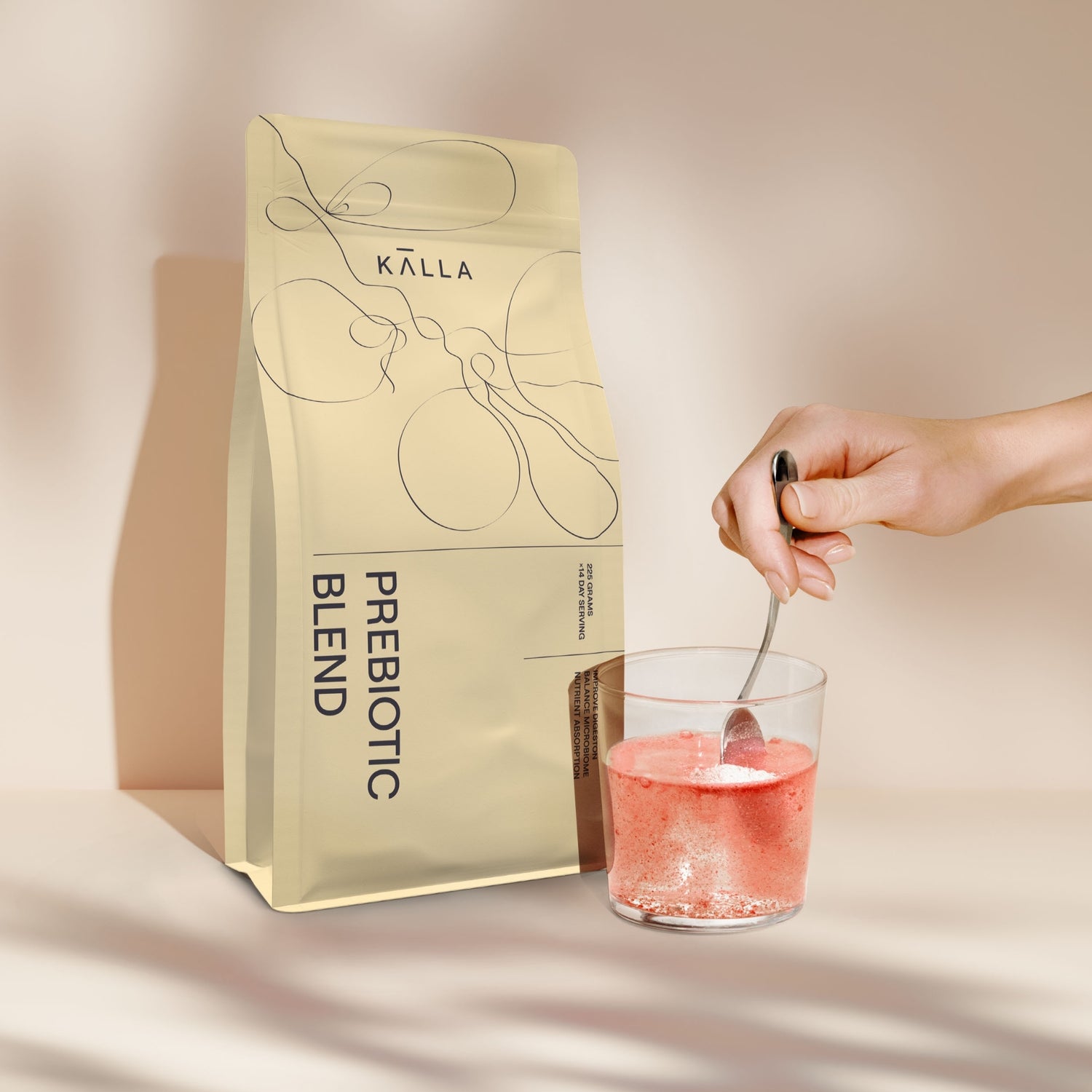
Prebiotic Blend
PREBIOTIC BLEND is formulated to help increase fibre intake—something most of us fall short on, with 90% not meeting the recommended daily amount.

FOR IMMUNE HEALTH - FAMILY EDITION
FOR IMMUNE HEALTH FAMILY EDITION is formulated for adults and children aged 1+, combining two clinically studied strains with immune-supporting vitamins D, B12, and folic acid.
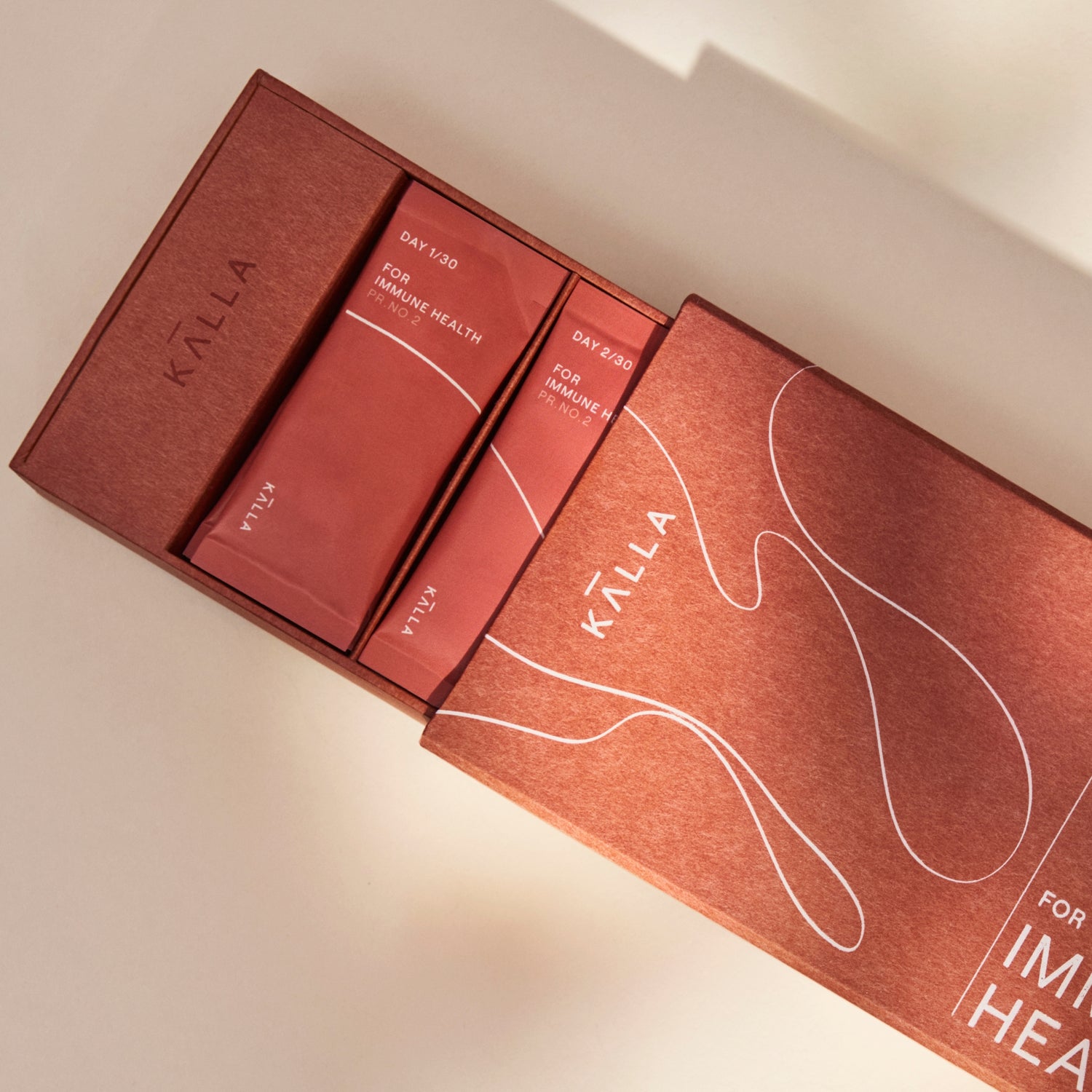
FOR IMMUNE HEALTH PR. NO 2
FOR IMMUNE HEALTH pairs two clinically studied probiotic strains—supported by over 20 clinical trials—with Vitamin D3, B12, and Folic Acid to help maintain immune function.
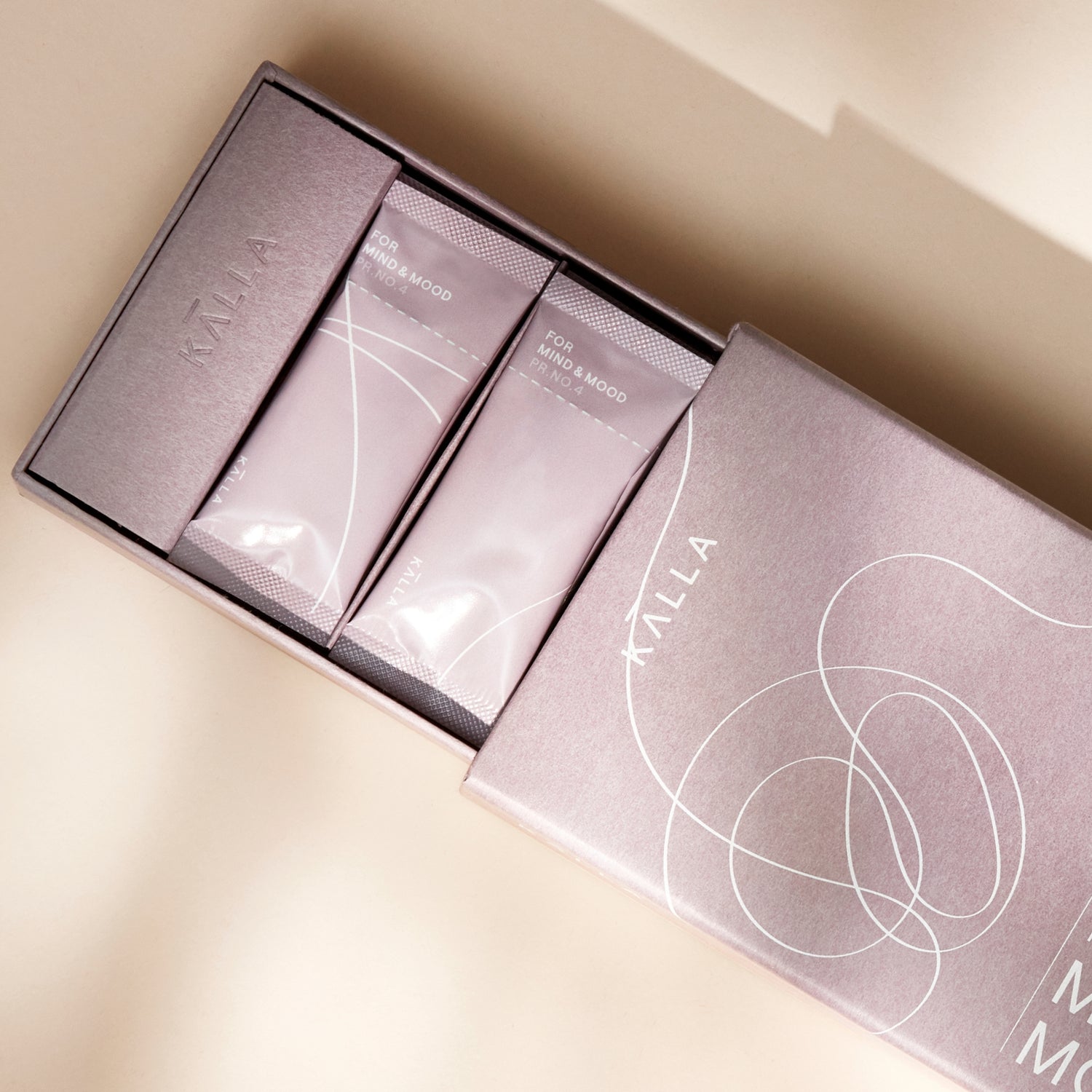
FOR MIND & MOOD PR. NO 3
FOR MIND AND MOOD is a clinically studied probiotic developed to support mental well-being via the gut-brain axis.
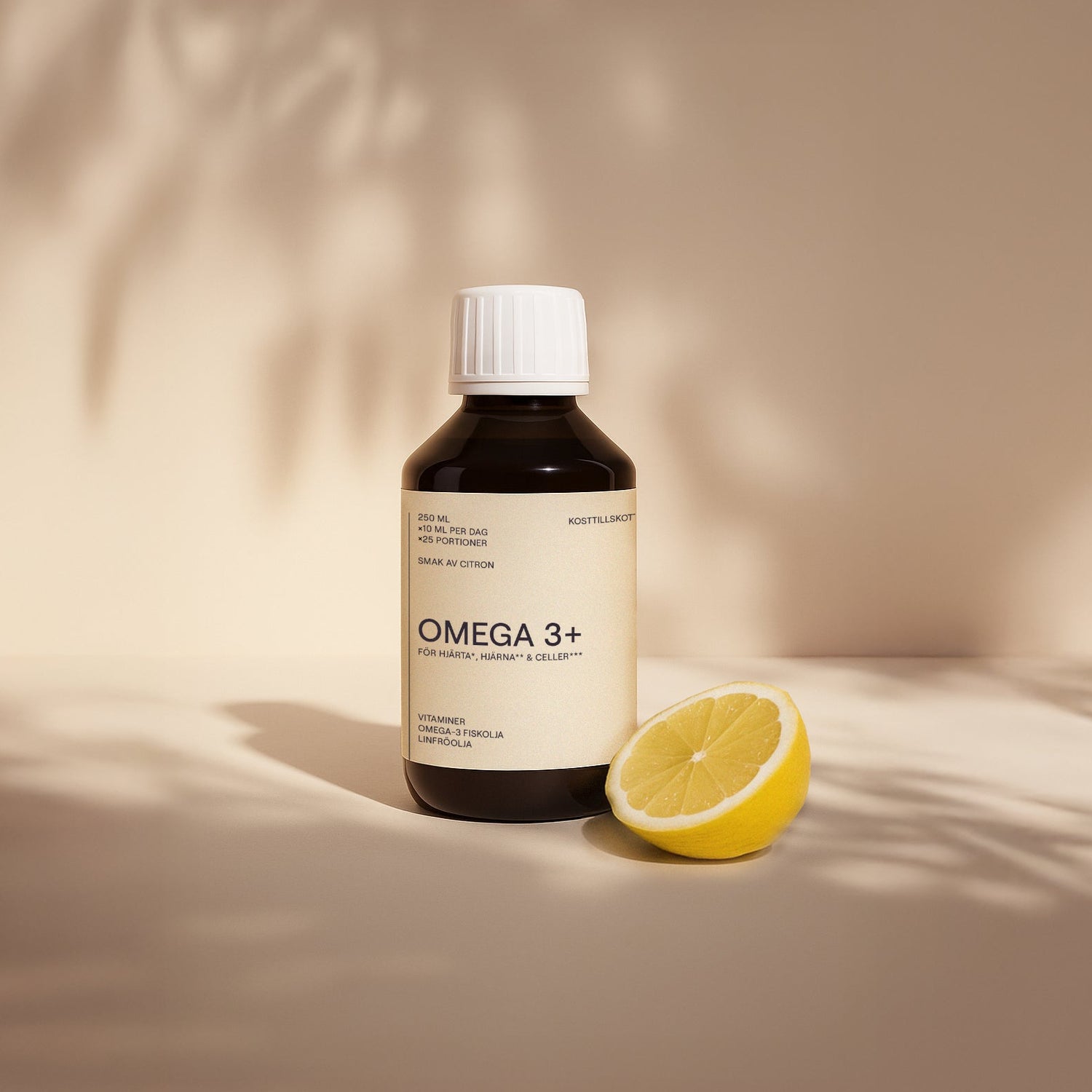
Omega 3+
Our OMEGA-3+ delivers over 2,000 mg of EPA and DHA per serving, to support normal heart function, brain health, and vision.

HORMONES & ME
HORMONES & ME is our bestselling supplement for women in perimenopause and menopause.
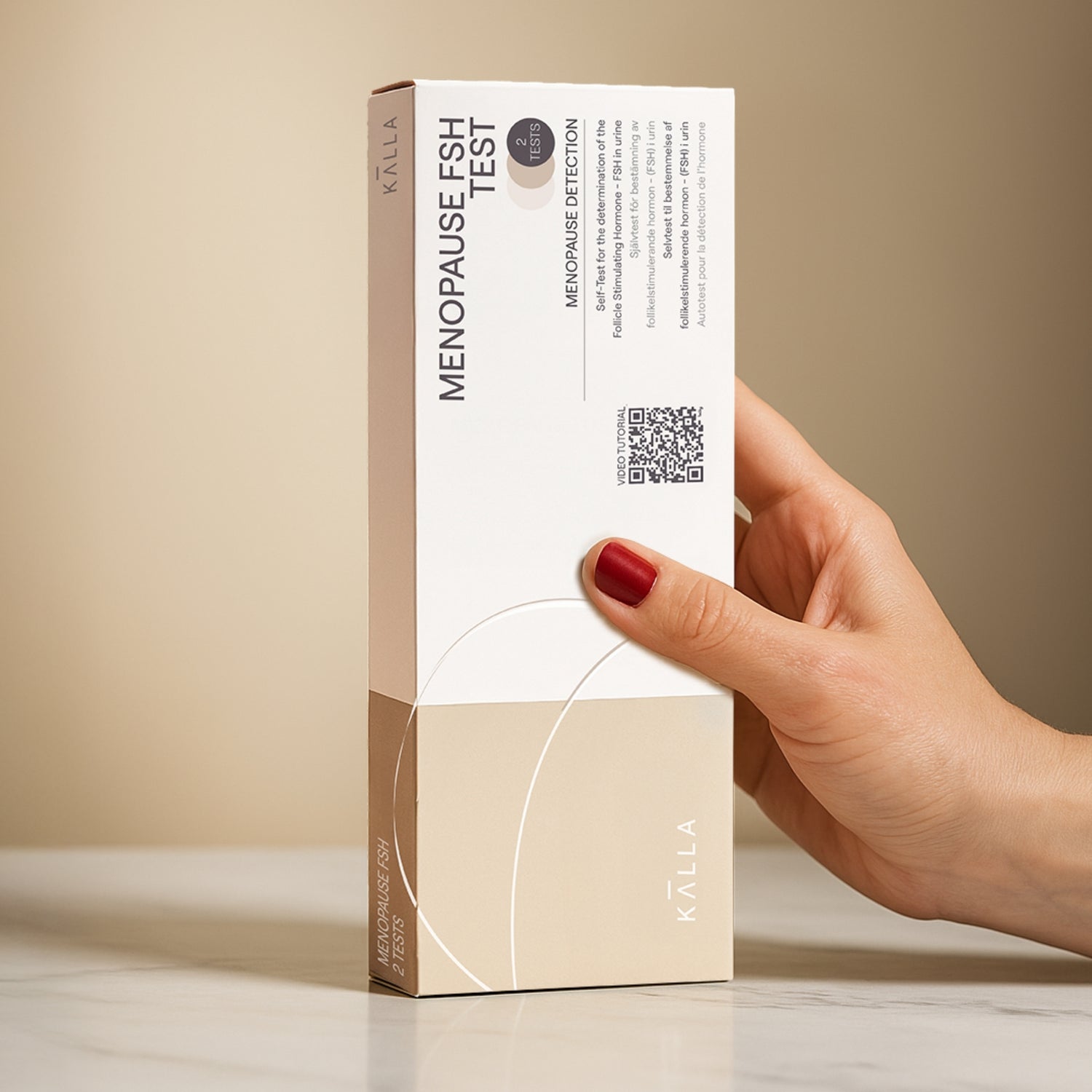
Menopause Test
The KÄLLA Menopause Test is a discreet, at-home test that helps you determine if you are entering perimenopause or the menopause.

CYCLE SYNC
CYCLE SYNC is an evidence-based supplement system designed to support your body through the natural hormonal shifts of your cycle.
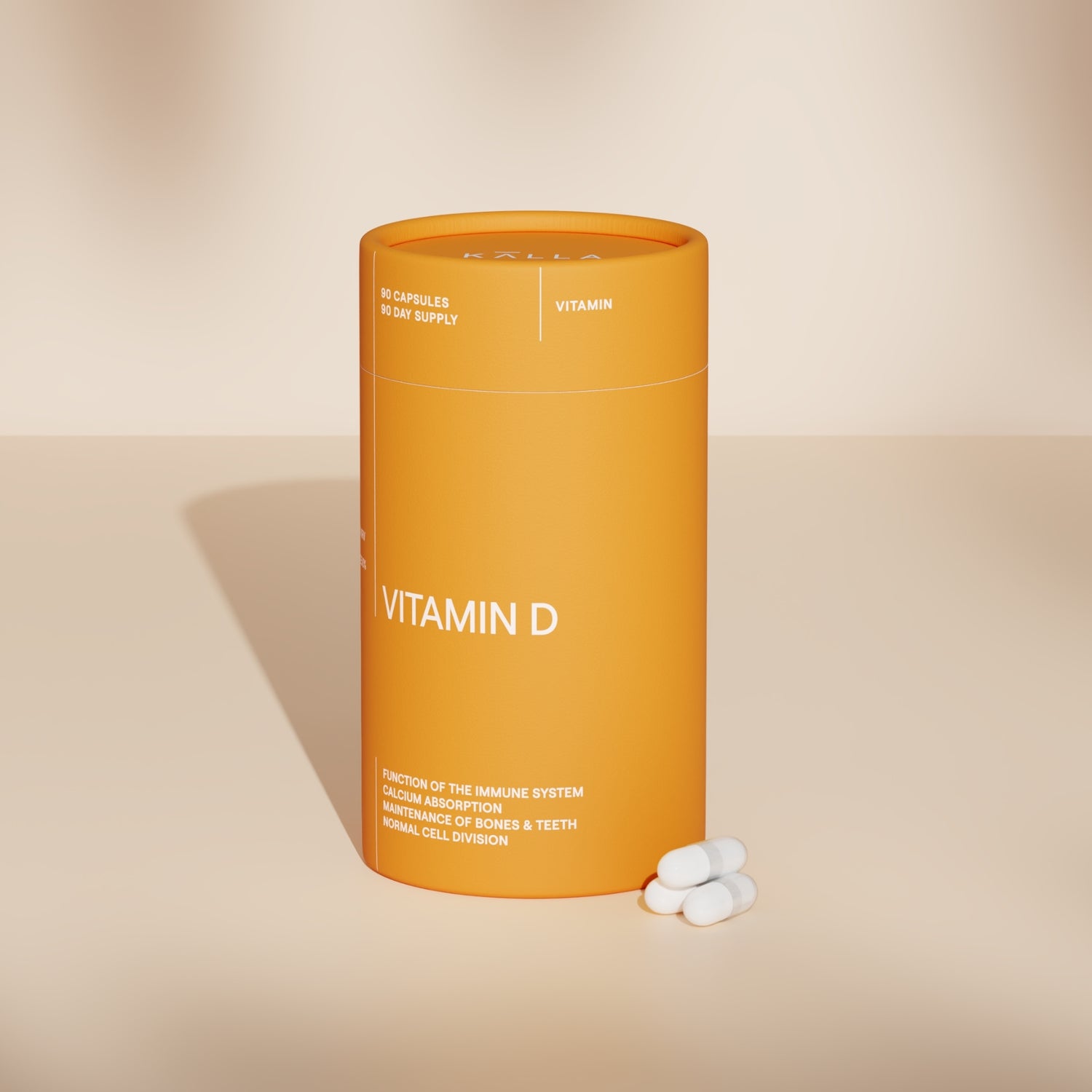
Vitamin D
Our Vitamin D capsules provide a precise daily dose of the essential “sunshine vitamin.”

Pure Creatine Monohydrate
Our Creatine Powder delivers 100% creatine monohydrate in a clean, unflavoured powder that mixes easily into drinks.

Collagen+
Collagen+ is a daily powder made to support skin elasticity, hydration, and glow — from within.

FOR RELIEF PR. NO 1
FOR RELIEF is our best-selling probiotic powder, taken daily by thousands to support digestive balance.

PERFORM: Protein Powder
PERFORM is the first probiotic protein powder formulated to deliver results—without the bloat.

ENHANCED NAD+
Advanced cellular support for energy, focus, and healthy ageing. Our ENHANCED NAD+ combines nicotinamide riboside, resveratrol, coenzyme Q10, and B vitamins.

Deep Sleep Essentials
This powerful duo reduces stress, supports healthy neurotransmitter function, and promotes deep, restorative sleep — so you wake up energised for the day ahead.

Magnesium
Magnesium² combines two highly absorbable forms to promote muscle relaxation, deeper sleep, and overall well-being.

Omega 3+
Our OMEGA-3+ delivers over 2,000 mg of EPA and DHA per serving, to support normal heart function, brain health, and vision.

ENHANCED NAD+
Advanced cellular support for energy, focus, and healthy ageing. Our ENHANCED NAD+ combines nicotinamide riboside, resveratrol, coenzyme Q10, and B vitamins.

Energy Trio
This trio combines three essentials for optimal energy: Vitamin D, Magnesium and ENHANCED NAD+ to reduce fatigue and support energy production at the source.

Pure Creatine Monohydrate
Our Creatine Powder delivers 100% creatine monohydrate in a clean, unflavoured powder that mixes easily into drinks.

Vitamin D
Our Vitamin D capsules provide a precise daily dose of the essential “sunshine vitamin.”

Omega 3+
Our OMEGA-3+ delivers over 2,000 mg of EPA and DHA per serving, to support normal heart function, brain health, and vision.

FOR IMMUNE HEALTH - FAMILY EDITION
FOR IMMUNE HEALTH FAMILY EDITION is formulated for adults and children aged 1+, combining two clinically studied strains with immune-supporting vitamins D, B12, and folic acid.
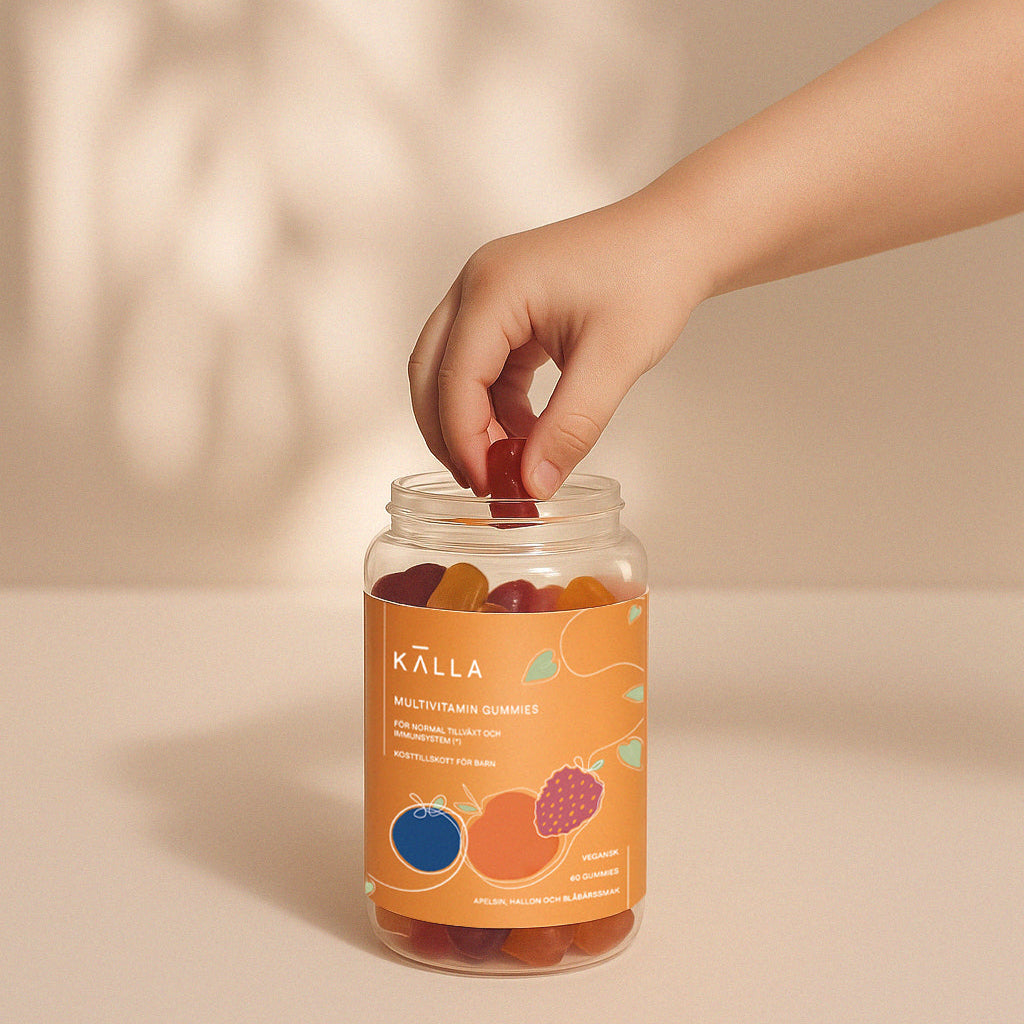
Kids Multivitamin
Our daily gummies support kids’ wellbeing with 9 essential vitamins for immunity, growth, energy, and cognitive development.

Prebiotic Blend
PREBIOTIC BLEND is formulated to help increase fibre intake—something most of us fall short on, with 90% not meeting the recommended daily amount.

Vitamin D
Our Vitamin D capsules provide a precise daily dose of the essential “sunshine vitamin.”

FAMILY-IMMUNE SET
Immune support for the whole family – made easy. This powerful duo is designed to keep your family feeling their best, with a focus on year-round immune health.

Omega 3+
Our OMEGA-3+ delivers over 2,000 mg of EPA and DHA per serving, to support normal heart function, brain health, and vision.

PERFORM: Protein Powder
PERFORM is the first probiotic protein powder formulated to deliver results—without the bloat.

ESSENTIALS FOR HIM
ESSENTIALS FOR HIM is formulated to support healthy testosterone levels and performance as the body changes with age.

Magnesium
Magnesium² combines two highly absorbable forms to promote muscle relaxation, deeper sleep, and overall well-being.

Omega 3+
Our OMEGA-3+ delivers over 2,000 mg of EPA and DHA per serving, to support normal heart function, brain health, and vision.
